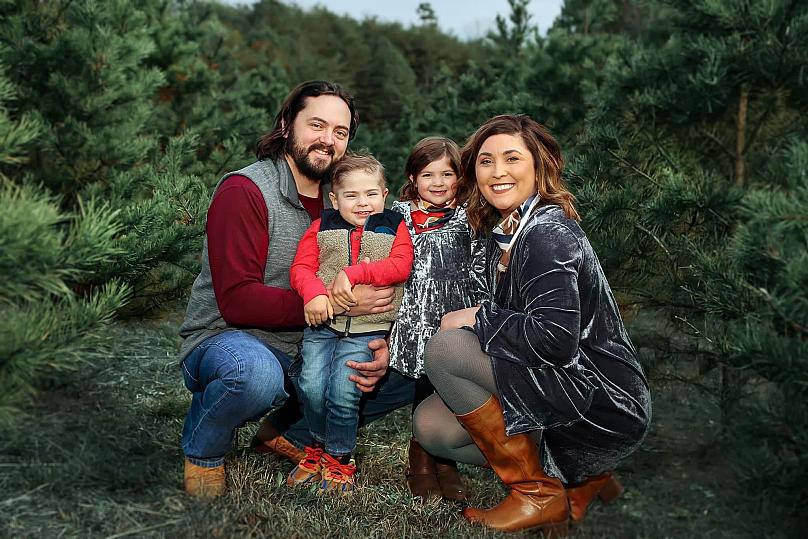Good News: Groundbreaking kidney transplant technique and ‘Nemo’s Highway’ for marine creatures Access to the commentsCOMMENTS
By Camille Bello • Updated: 24/06/2022 – 19:22
Good News
Good News – Copyright Euronews
SHARE THIS ARTICLE
embed
facebook
twitter
flipboard
mail icon
Another week, another five reasons to be cheerful about this weekend. These are our picks from what is going well in the world.
A Parisian restaurant turning unwanted food into high-class meals for those most in need.
A massive pilot project could see the working week reduced to four days.
EU workplaces can expect an increase in female directors after gender quotas are applied to boardrooms.
Four Latin American countries have come together to create what they are calling ‘Nemo’s Highway’, a vast ocean reserve that will protect migrating sea creatures.
A groundbreaking kidney transplant technique could eliminate the need for lifelong immune drugs.
1. The Parisian restaurant turning unwanted food into high-class meals for those most in need.
Refettorio Paris is a community kitchen with a difference. Both a project for social inclusion and an outstanding restaurant, Refettorio Paris sits in the crypt of the church of la Madeleine and it is only open to people in situations of vulnerability.
Refettorio’s goal is to transform surplus ingredients, which would otherwise be wasted, into gourmet, healthy and seasonal meals for the people that need them most.
With the help of a team of volunteers, which sometimes includes the likes of international movie stars such as Marion Cotillard, they serve over 100 meals a day, using about 130kg of recycled food.
Food for Soul, a non-profit organisation founded by celebrity chef Massimo Bottura and his wife Lara Gilmore, is behind the Refettorio Movement around the world. And French artist JR joined them as the co-founder of the Paris location.
As well as its chef-in-residence Maxime Bonnabry Duval, more than 100 famous guest chefs have joined the Refettorio since its launch in 2018. Big names include Alain Ducasse, Yannick Alleno, and of course, founder Massimo Bottura. Their challenge is to use the available ingredients to come up with a dinner menu of which any restaurant would be proud.
2. A massive pilot project could see the working week reduced to four days.
Most of us can only dream of working a four-day week on the same pay. But for some 3,300 employees in the UK, it’s now a reality.
Seventy UK companies have officially started the biggest ever four-day week trial. It will run for six months, until November 2022.
Researchers from Cambridge University, Oxford University and Boston College will study the impact of the reduced hours on productivity and the well-being of its workers, as well as the impact on the environment.
They hope participants will maintain their productivity levels while working 80 per cent of their previous hours.
Until now the largest study of this kind took place in Reykjavík, in 2015 and 2016. More than 2,500 workers were involved in the trial, and it led to important changes in Iceland.
By 2021, 86 per cent of the country’s workers were either working shorter weeks or had contracts that allowed them to reduce their hours.
3. EU workplaces could soon be seeing an increase in female directors after gender quotas are applied to boardroom
Gender equality came a little closer to reality this month, with a European Union agreement to apply gender quotas in the boardroom.
The legislation requires listed companies in all 27 EU member states to have women in at least 40 per cent of non-executive board positions, or 33 per cent of all board director roles, by mid 2026.
In cases where candidates are equally qualified for a post, priority should go to the candidate of the under-represented sex.
“Diversity is not only a matter of fairness. It also drives growth and innovation. The business case for having more women in leadership is clear. There are plenty of women qualified for top jobs: they should be able to get them,” said the President of the European Commission, Ursula von der Leyen.
The good news is that last year, EU data showed women occupied 30.6 per cent of boardroom positions across the bloc, although it varied widely from country to country, with Cyprus having only 8.5 per cent of women in the boardroom, and France more than 45 per cent.
France is so far the only EU state to go over the new threshold.
According to the European Institute for Gender Equality, countries imposing binding quotas are much more successful in putting more women on boards than countries that have taken softer measures or no action at all.
4. Four Latin American countries have come together to create what they are calling ‘Nemo’s Highway’
In a massive boost to marine wildlife, four Pacific-facing countries have created a vast underwater reserve dubbed ‘Nemo’s Highway.’
It is the result of an agreement between Costa Rica, Panama, Ecuador and Colombia set up to protect migrating fish.
Scientists have discovered a network of natural sea corridors that cover thousands of kilometres, recording the passage of creatures such as turtles, hammerhead sharks, manta rays and whales.
The marine species travelling along these underwater routes have long been in danger from intensive fishing, but these zones will ensure that endangered species are not at risk from trawlers.
“Once the animals move away from these protected areas, they are vulnerable to overfishing and to human activities again. So why don’t we regulate and why don’t we protect these highways underwater that connect the different key areas?” asked Erick Ross Salazar, executive director of the NGO MigraMar.
With luck, the efforts of Costa Rica, Panama, Ecuador and Colombia will set an example to the rest of the world.
5. A groundbreaking kidney transplant technique could eliminate the need for lifelong immune drugs.
Our bodies are ruthless when it comes to rejecting infections and anything they consider to be a foreign body.
This is great for battling cancer or sneezing out dust, but creates problems for transplant patients, who have to take anti-rejection medication for life.
Three children who have undergone kidney transplants in California, however, might be spared this, thanks to an innovative technique that eliminates the need for lifelong immunosuppression.
Ordinarily, after the successful transplant of a kidney or other organ, the next critical step is persuading the body not to reject the organ. Doctors describe immune tolerance as the ‘Holy Grail’.
This groundbreaking new procedure was carried out by scientists at Stanford Medicine on three children with an extremely rare genetic disease.
Around three years after the transplants, the children’s kidneys and immune systems are functioning normally. In other words, their bodies have not identified the newly donated organs as a threat worthy of attack.
The treatment used at Stanford isn’t new, but it hasn’t had this kind of success before. It involves a stem cell transplant that trains the immune system not to reject a subsequent kidney donation.
Though the children’s disease is very rare, experts in the field of kidney transplantation say the results seen in these kids hold tremendous promise for transplants in general.
Amanda Chapman Photography, shared by the Davenport family
Kruz, left, and Paizlee are thriving after receiving stem cell and kidney transplants from their parents, Kyle and Jessica Davenport.Amanda Chapman Photography, shared by the Davenport family
Good news: The miracle drug eradicating rectal cancer and universal charger for electronics
Good News: toilets turn urine into fertiliser, a rare leopard’s spotted and a tea room saved in Kent
Good News: Big step towards ‘quantum internet’ and a village lit up by the sea
And if you’re still hungry for more positive news, click for more above.
Video editor • Mert Can Yilmaz



















![How to get a Qatar Family Residence Visa? [ Updated ]2022](https://welcomeqatar.com/wp-content/uploads/2022/04/maxresdefault-2-324x400.jpg)










